
- •2.1. Зразок нетрадиційного уроку………………………………….41
- •2.2. Зразок інтерактивного уроку……………………………………….56
- •Розділ 1 Теоретичні аспекти інтерактивних, нетрадиційних уроків
- •1.1. Стан проблеми в науковій літературі
- •1.2. Характерні особливості нетрадиційного уроку
- •1.3. Структурна характеристика інтерактивного уроку
- •5. Підбиття підсумків, оцінювання результатів навчання
- •Розділ 2 Використання нетрадиційних та інтерактивних технологій на уроках англійської мови
- •2.1. Зразок нетрадиційного уроку
- •Міжпредметний урок
- •Group work. Environmental Posters ( Вправа – ділова гра)
- •2.2. Зразок інтерактивного уроку
- •Хід уроку
- •II. Вступне слово вчителя й бесіда з класом:
- •IV. Учні працюють у команді з постерами “controlling pollution”
- •VI. Вправа на розвиток критичного мислення:
- •VIII. Підведення підсумків:
- •Висновок
- •Список використаної літератури
5. Підбиття підсумків, оцінювання результатів навчання
Підбиття підсумків (рефлексія) уроку (20% часу). Це дуже важливий етап інтерактивного заняття. На ньому порівнюються одержані знання з очікуваними результатами, робляться висновки, закріплюється матеріал, аналізуються власні дії, отримані результати, складається план подальших дій.
Бажано поставити учням такі запитання:
Що нового дізналися?
Яких навичок набули ?
Як це можна застосувати в житті ?
Що сподобалося на уроці ?
Розділ 2 Використання нетрадиційних та інтерактивних технологій на уроках англійської мови
2.1. Зразок нетрадиційного уроку
Міжпредметний урок
Заліщицька державна гімназія
Лучин Ірина Зенонівна
Англійська мова – 8-А клас
Lesson plan
Aim: teach the students about urgent environmental problems and help them find solutions to those problems.
Objectives:
develop the students’ understanding of our planet as a single unique ecosystem with its problems;
develop critical thinking skills, creativity, analytical and synthetic thinking, attention;
teach the students to appreciate and protect their immediate environment and its elements;
promote love and respect for the native land and its resources.
Materials and equipment: PPT presentations, a tree poster, letters in a large envelope, interactive whiteboard, Solutions Pre-Intermediate I-Tools, draft posters.
Procedure
Warm-up. Homework Check. Planet Earth.
Teacher: Let us start our lesson with homework check. Please, try to work quickly, as we have a lot to do today. Here's how we'll check your understanding of the conditionals:
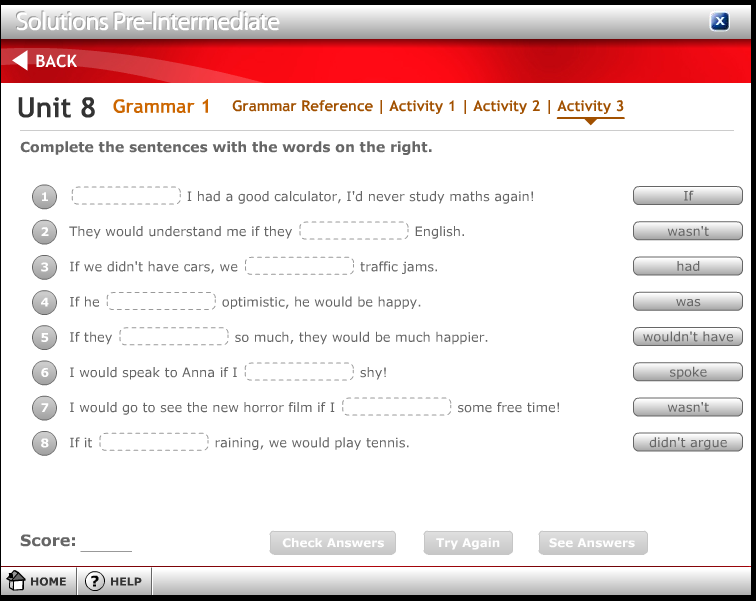
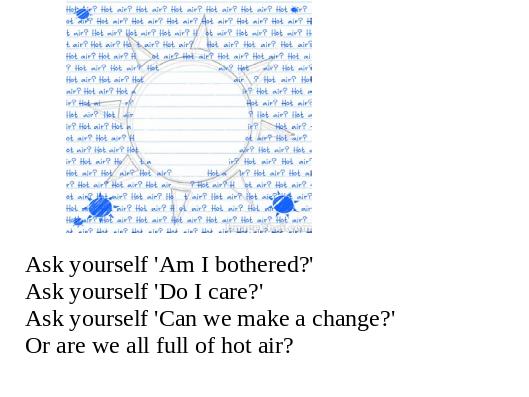
Teacher: Good work! Now, we have a poem on the screen. I suggest that you read it and try to guess the topic of today’s lesson. (Students read the poem on the IWB):
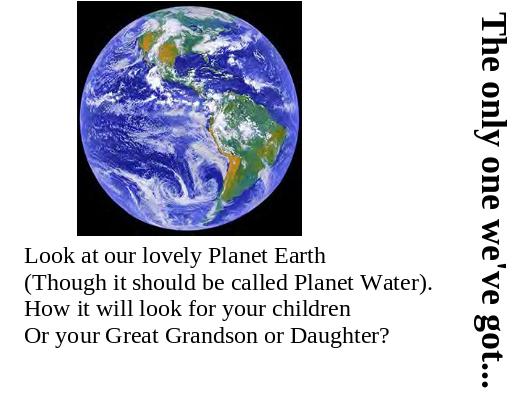

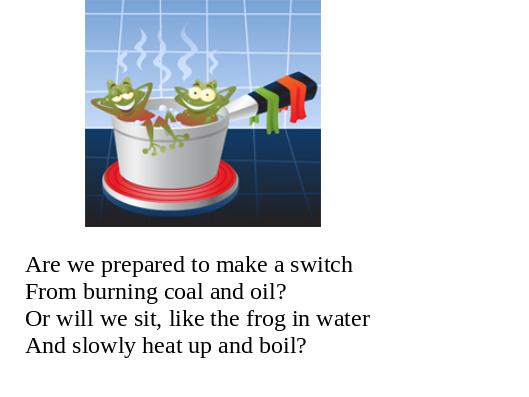
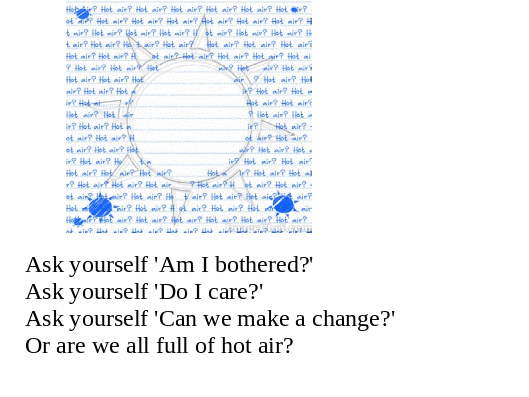
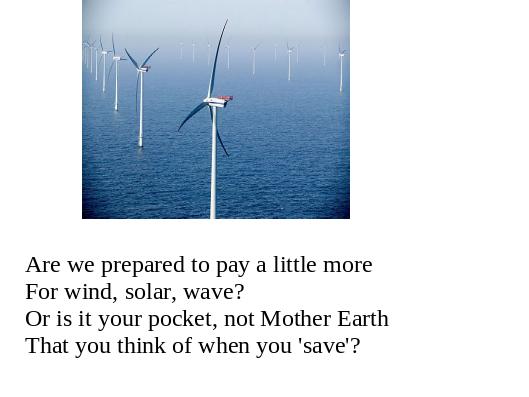
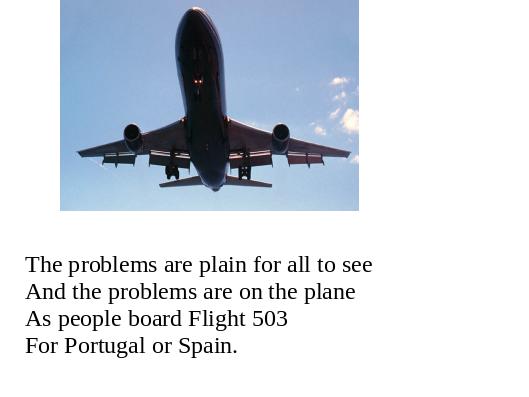
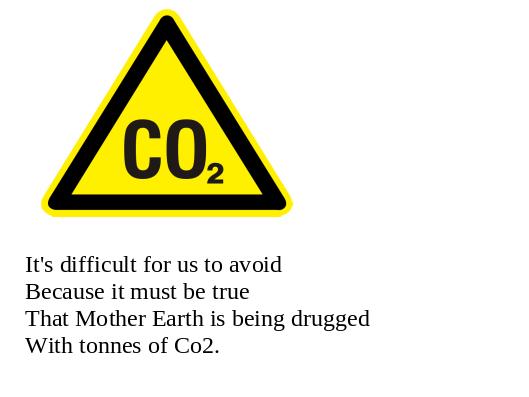


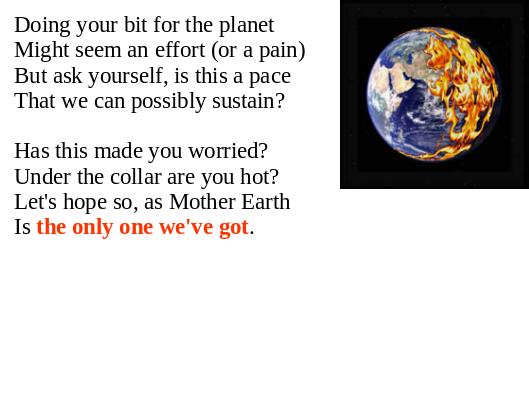


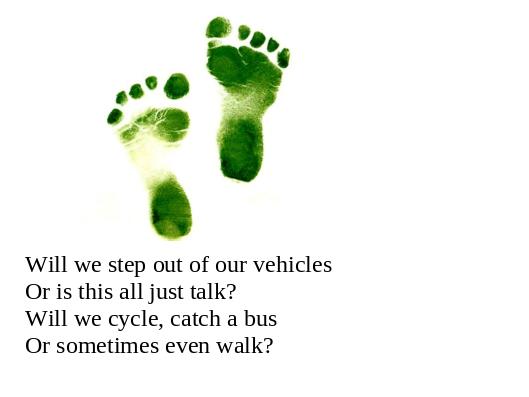


(Pupils guess that today’s lesson is going to be about the environmental problems).
Letters from Rosy (Speaking + reading)
Teacher: Today, we are going to speak about some of the most urgent problems our planet faces now. (At this point, a pupil knocks on the door and enters the class. He says, “I’ve just been to the forest and look what I’ve found”. He gives a large envelope with letters to the pupils. The envelope is smudged with dirt and has some oak leaves inside. Also, inside there is a letter from the oak-tree, Rosy, and small animals which live in Rosy’s branches or trunk. Pupils read the letters and pin them to a large poster of Rosy at places of the animals’ habitats).
Rosy’s letter (урок винахідливості)
Dear children,
My name is Rosy, I am a very, very old oak tree and I have lived in a beautiful forest close to you for over 100 years. The local council where I live built some houses and wants to use me for beautiful furniture. I really don’t want to be chopped down! Please help!
Love,
Rosy

Dear English Club,
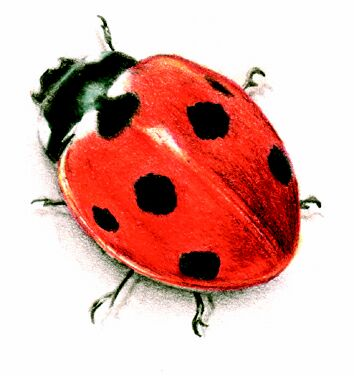
My name is Lauren, I am a ladybird that lives
in the tree, Rosy. I eat the tiny insects called
aphids that eat Rosy’s leaves. Without Rosy
I will have nothing to eat and no home.
Please help.
Warmest regards,
Lauren
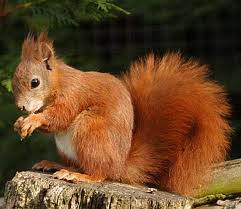
D ear
friends,
ear
friends,
The name’s Russell, I’m a pretty extreme
squirrel who uses Rosy as a bit of a
base. I climb her to escape from other animals
like dogs and people. I also store
my stuff inside Rosy, mostly food for
the winter, she’s great for that,
really watches out for me so no one nicks it!
Without Rosy my stuff and I won’t
be safe in this forest. Please help.
From,
Russell
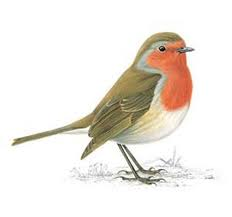
Dear children,
R uth
is my name and nesting is my game. I’m
uth
is my name and nesting is my game. I’m
a robin and each year I build a
beautiful nest in Rosy’s branches. It is
so lovely up there and my chicks
feel so safe in Rosy’s long
arms. Without her I would have to find
somewhere else to build my nest, which
might not be as safe. Please help.
Love,
Ruth
D ear
class,
ear
class,
This is Barry the beetle, and I just have to say
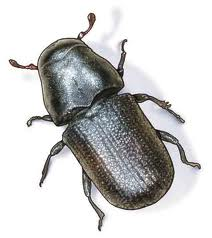 I’d
be lost without Rosy. She is just
I’d
be lost without Rosy. She is just
the perfect colour so I can hide
from other animals that
would like to eat me. The juice that she produces
in spring is just delicious. Seriously,
you should try it- and her leaves aren’t bad either.
I just wouldn’t be safe without Rosy and I’d be very
hungry! Please help!
Yours sincerely,
Barry Beetle
H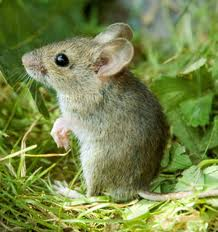 ello
friends,
ello
friends,
M y
name is Myra and I’m a woodmouse that
y
name is Myra and I’m a woodmouse that
lives inside Rosy, what a great tree
she is! She’s just the right colour for me to
blend in and she’s got great nooks
and crannies for me to store my food for the
winter. I would have to find a new
home if Rosy were cut down and I so love it
here. Please help.
Myra Mouse
Hello there,
M
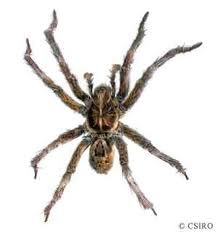 artin
Moth is my name and my kids really need
artin
Moth is my name and my kids really need
Rosy’s leaves to grow big and strong.
I’ve got about a hundred young
children all relying on Rosy for their breakfast,
lunch and dinner.
I mean, where am I going to find another tree
that gives all that, hey? Please help.
Martin Moth

D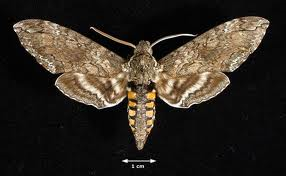 ear
children,
ear
children,
My name is Oscar and I am an owl. I sleep in Rosy,
she’s really the only tree where I can get some
rest away from all the hustle and bustle of all those
animals during the day.
Without Rosy I wouldn’t get a wink of sleep.
Please help!
Oscar Owl
(Вправа – винахідництво, вправа - диспут )
Teacher: Now that you’ve read the letters, please, give your ideas as to how you can save Rosy and millions of other trees. (Suggested answers: We could write a letter to a local council encouraging to organize recycling of paper and other things in town. We should write on both sides of paper and should not waste any paper. We should share our books with friends. We should recycle all the paper at home).
Teacher: I’d like you to listen to a beautiful poem by Lina Kostenko. (A student recites this poem in two languages – Ukrainian and English (translation). Simultaneously, slides with pictures of different trees in the forest are shown:
The Ukrainian version:
Цей ліс живий. У нього добрі очі.
Шумлять вітри у нього в голові.
Старезні пні, кошлаті поторочі,
літопис тиші пишуть у траві.
Дубовий Нестор дивиться крізь пальці
на білі вальси радісних беріз.
І сонний гриб в смарагдовій куфайці
дощу напився і за день підріс.
Малі озерця блискають незлісно,
колише хмара втомлені громи.
Поїдемо поговорити з лісом,
а вже тоді я можу і з людьми.
The English version:
The wood’s alive, deep kindness in his eyes,
Cool winds blow through his head with all their might.
Old hairy monsters-logs heave quiet sighs,
The script of silence on the grass they write.
Oak Nestor’s eyes upon his daughters’ rest,
Young birches swirling in their joyful dance,
A sleepy mushroom dressed in velvet vest
Had sipped some rain and then grew up at once.
Small shiny lakes do everything they could
To glorify the forest and its grace.
Let us confess our souls to the wood
And then find strength to deal with human race. (Translated by I. Luchyn)
Carbon Footprint
Teacher: You’ve noticed some stickers on your desk with small footprints drawn on them. Who could tell me what those footprints mean? (Elicits answers about carbon footprint, global warming, their causes and effects.) I would ask you to take those stickers and put them on those things in this room which produce a carbon footprint. (Pupils move around and put the stickers on items such as a computer, radiators, lights, etc.)
Example drawing on the sticker:
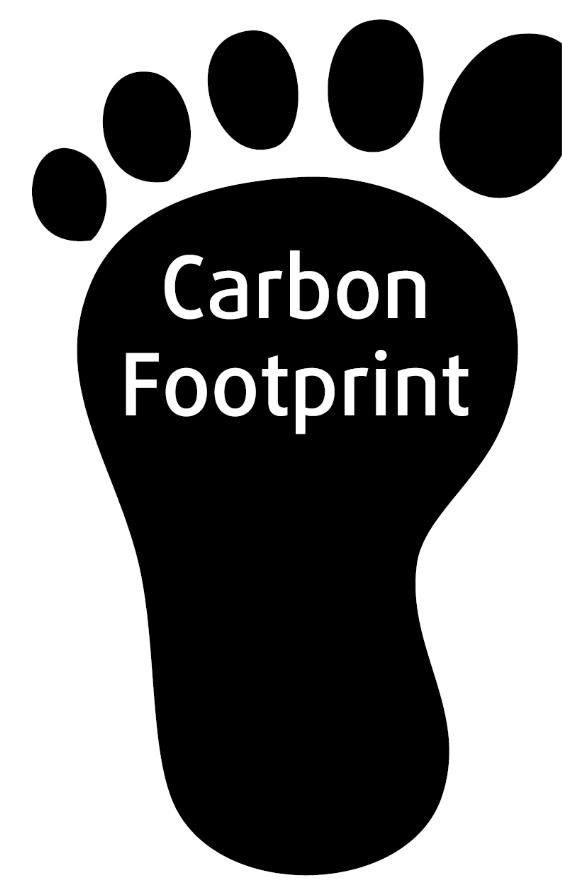
Then, pupils and the teacher look at the slide on the IWB and discuss the ways of solving the problem of global warming:
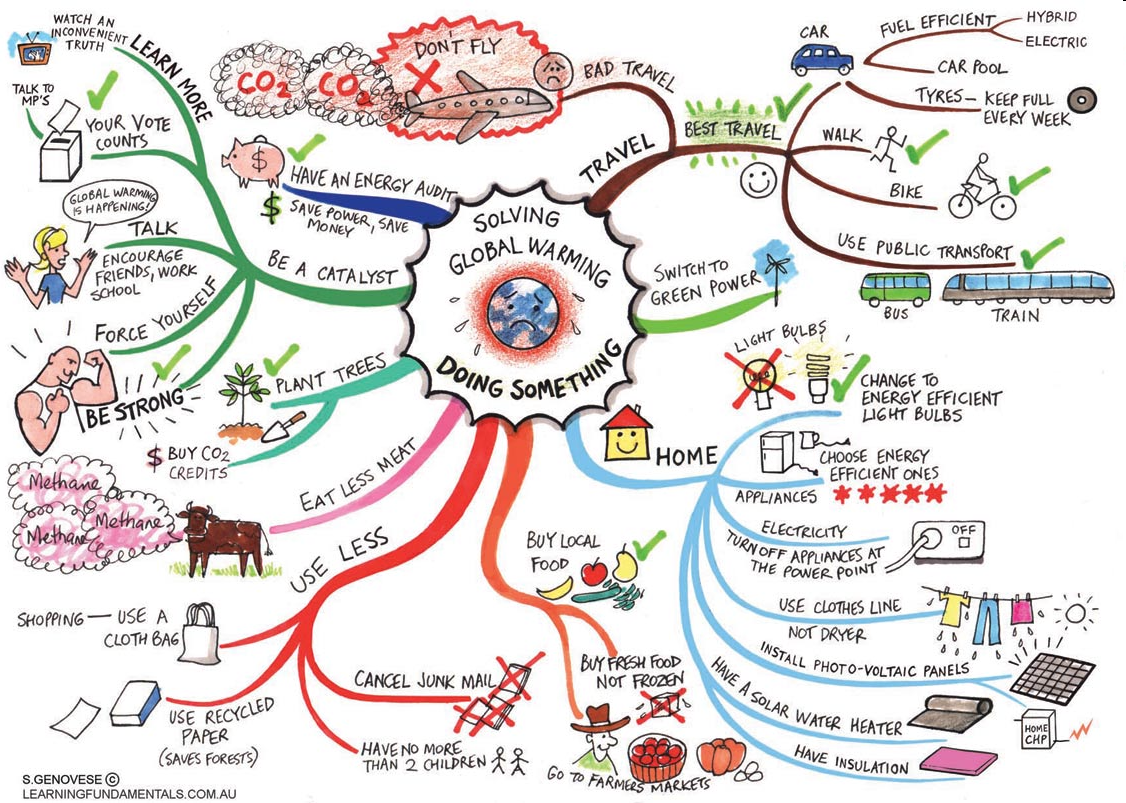 (Then
one of the pupils asks questions about good and bad carbon practices
and the other pupils answer those questions without looking at the
IWB (the projector is switched off).
(Then
one of the pupils asks questions about good and bad carbon practices
and the other pupils answer those questions without looking at the
IWB (the projector is switched off).
Teacher: Now, I’d like you to create a carbon map of your day. Please, remember yesterday’s activities and take a red card for each activity that is bad for the environment and a green card for an eco-friendly activity. (The teacher reads the questions to help pupils choose cards, then a winner (with most green cards) and an anti-winner (with most red cards) are announced). Questions:
Did you:
use a car? (red card)
use a bike/bus/walk? (green card)
use a microwave/an oven/an iron/a hair drier? (red card)
use a cloth shopping bag? (green card)
turn off appliances at power point? (green card)
switch off lights when you didn’t need them? (green card)
buy frozen food? (red card)
plant anything? (green card)
Life in a Bubble
(Вправа – спектакль, вправа - суд)
Teacher: Now I’d like you to meet Gerald. He is a boy who lives in a bubble. (A pupil who has prepared beforehand acts out Gerald’s life during the day using some rubbish and a rubbish bag). Another pupil reads aloud Gerald’s story while his friend is acting it out:
Gerald wakes up in the morning and begins his day with a nice bowl of cereal.
He finishes the box and throws it away. Gerald also finishes the milk, and being
such a tidy child, he throws the old milk container away.
He then goes and has a shower and opens the packaging for a new bar of soap
and throws the packaging away. He also uses the last of the toothpaste and
throws this away as well.
In his first class Gerald goes to use one of the felt tip pens but someone has left
the lid off it over night and so Gerald throws the felt tip away.
At lunch Gerald eats all of his packed lunch and throws his rubbish away.
In the afternoon Gerald draws a picture in art but decides he would like to start
again and throws the piece of paper away. His ruler got snapped
when he sat on it accidentally and his teacher tells him to throw it away.
That night Gerald reads a magazine, and when he is finished he throws it into the bin.
Teacher: In Gerald’s bubble, is there any ‘away’? Where are all the things that Gerald has thrown away? Our Earth is just like Gerald’s bubble, there is no away. We live in a closed system where everything that is on Earth will always be here.
Where do the things that you throw away go? (Landfill, recycling plant, etc).
Let’s take the environmental quiz and check how much you know about the problem of rubbish. (Solutions Pre-Intermediate iTools, Unit 8, Culture):
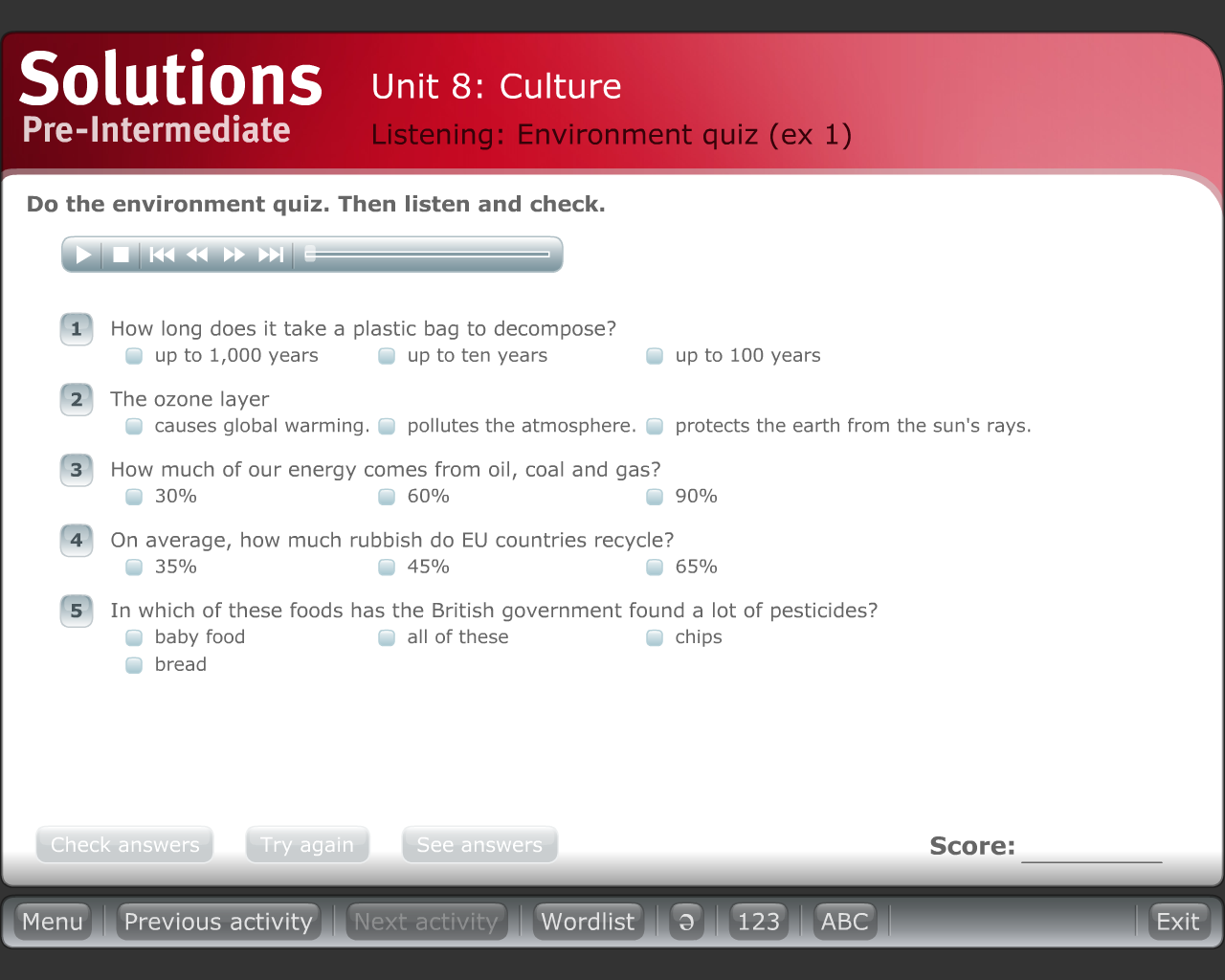
Teacher: Good work! Now we all understand that there’s no ‘away’ for us and we need to be careful when throwing rubbish away.
Water is Life
Teacher: I’d like to start this part with a small quiz.
Did you know…?
We are drinking the same water the dinosaurs drank!
Water covers 3/4 of the Earth’s surface!
YOUR body is 2/3 water.
Most of the water on the Earth today is not clean!
(Вправа-мандрівка)
Now, let’s see a presentation called “Year 2070” which shows us the possible effects of our today’s careless behavior on the future generations. (A pupil reads the texts on the slides):
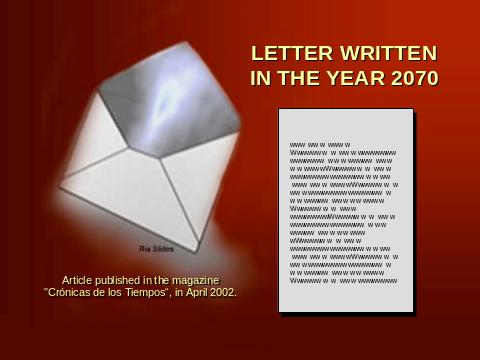
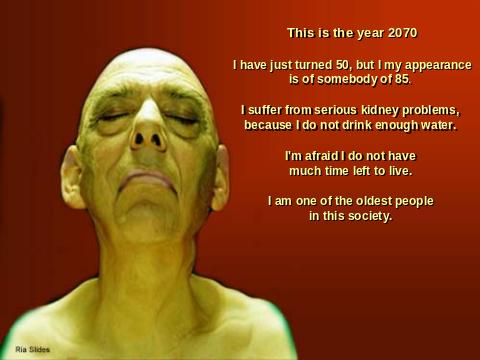
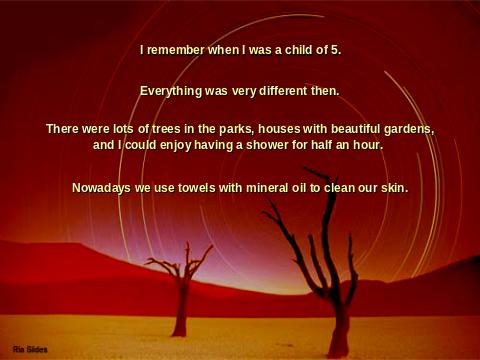
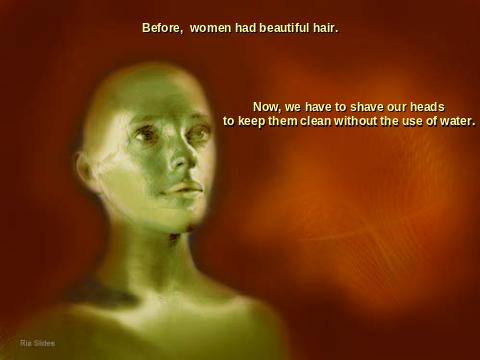
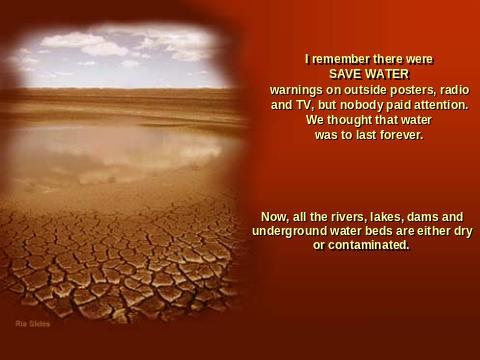
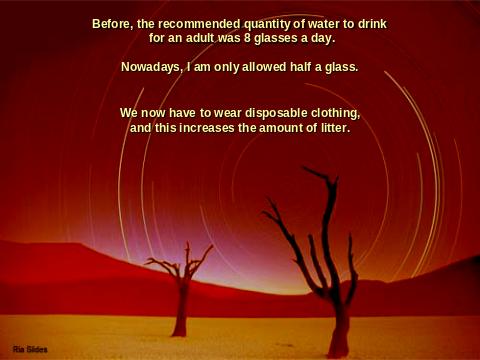
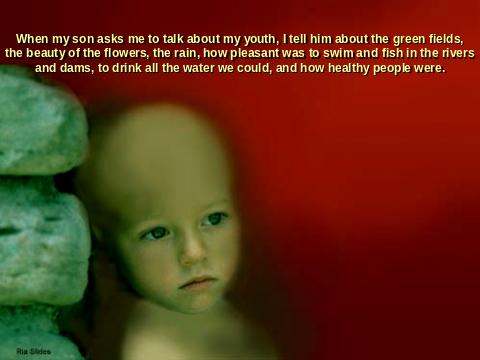
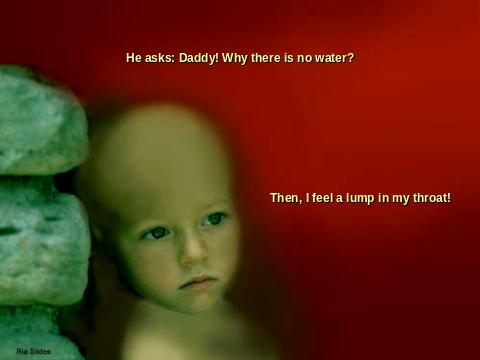
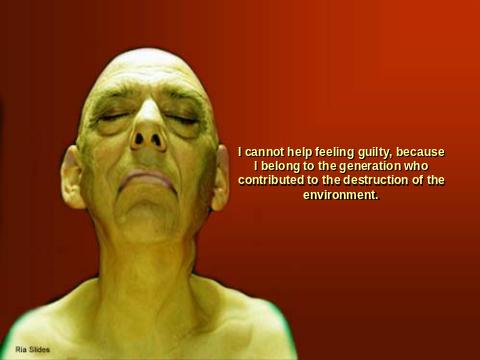
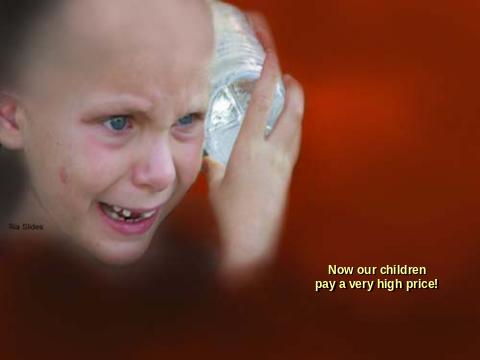
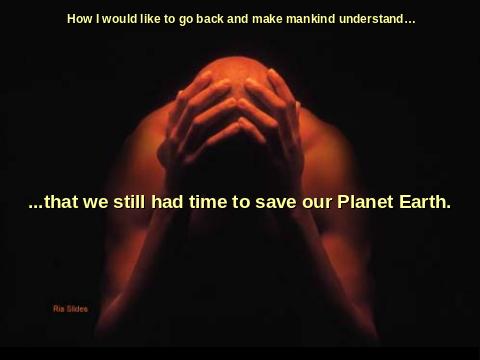
Teacher: Please, tell me how you feel after seeing this presentation. Let us discuss some ways to save water and keep it clean for the next generations to come. (Suggested answers: turn off the tap when you don’t need the water; have a shower instead of a bath; don’t waste water while washing a car or cleaning a house…).
